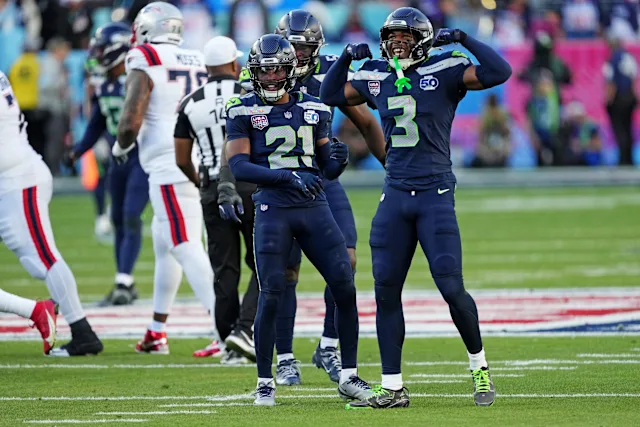Sports nutrition is a crucial component of athletic performance. It involves understanding what athletes should eat and drink to optimize their performance, recovery, and overall health. In this FAQ, we’ll break down the role sports nutrition plays in enhancing athletic capabilities and how proper dietary strategies can lead to improved outcomes in sports.
Understanding Nutritional Needs
Every athlete has unique nutritional needs based on their sport, body type, and training intensity. Understanding these needs is the first step in optimizing performance.
For instance, a marathon runner will require more carbohydrates to sustain energy than a weightlifter who might focus on protein for muscle repair. Tailoring diets according to specific demands allows athletes to perform at their best.
Additionally, factors such as age, gender, and metabolism also influence nutritional requirements. Hence, athletes should work with nutritionists to create a personalized plan that suits their unique circumstances.
In time, a well-structured nutritional roadmap translates into enhanced endurance, strength, and recovery times. As a result, athletes not only experience immediate benefits but may also achieve long-term health improvements.
Importance of Macronutrients
Macronutrients—carbohydrates, proteins, and fats—play distinct roles in fueling the body. Learn how to balance these nutrients for peak performance.
Carbohydrates act as the primary energy source, especially during high-intensity workouts. They provide quick energy, enabling athletes to maintain their performance levels during competitions.
On the other hand, proteins contribute to muscle growth and repair. Consuming adequate protein post-workout can significantly enhance recovery, allowing athletes to train harder and more frequently.
Fats, although often misunderstood, are essential too. They provide a concentrated energy source and are crucial in supporting cell growth and hormone production.
An effective strategy for athletes is to focus on whole food sources of these macronutrients. This approach ensures they receive not just macronutrients but also vitamins, minerals, and fiber that support overall health and performance.
Hydration and Performance
Staying hydrated is vital for athletic performance. Explore the effects of dehydration and how much fluid intake is optimal for athletes.
Dehydration can lead to fatigue, decreased coordination, and even more severe health issues. Understanding how to recognize the signs of dehydration is crucial for athletes at all levels.
A general guideline is to drink about 17-20 ounces of water 2-3 hours before exercising. During intense activities, athletes should aim for at least 7-10 ounces every 10-20 minutes.
Electrolytes also play a significant role in hydration. For long-duration activities, drinks containing sodium and potassium can help maintain electrolyte balance and support endurance.
Ultimately, adopting a personalized hydration strategy allows athletes to maintain peak performance levels, ensuring they are both safe and effective during their training and competitions.
Meal Timing Strategies
The timing of meals can significantly impact an athlete’s performance. Discover the best times to eat before, during, and after training or competition.
Pre-workout, it’s advisable to consume a meal rich in carbs and protein. This combination provides energy and prepares the body for the demands of exercise.
During exercise, especially events lasting longer than an hour, quick energy sources like gels or sports drinks can sustain performance. This allows athletes to minimize fatigue and optimize their endurance.
After workouts, a recovery meal that combines protein and carbohydrates is key. This helps replenish glycogen stores and aids in muscle repair, setting an athlete up for the next training session.
Learning the science behind meal timing enables athletes to harness their nutrition effectively, allowing them to refine their performance strategies and adapt better during competitions.
Supplements: Are They Necessary?
Supplements can be a helpful addition to an athlete’s diet. We’ll discuss which supplements may enhance performance and which are best avoided.
While whole foods should always be the priority, certain supplements can provide additional benefits, particularly to athletes with specific dietary restrictions or those looking to optimize their training.
Protein powders are widely used for their convenience and ability to support recovery. Creatine is another popular supplement known to enhance strength and power output in short bursts of high-intensity activities.
However, athletes should approach supplements cautiously. Not all supplements are created equal; it’s essential to choose quality products and consult with a healthcare professional to avoid unnecessary risks.
In conclusion, while supplements can play a role in an athlete’s nutrition, they are most effective when used in conjunction with a balanced diet and proper training regimens.
Common Nutrition Myths
There are many myths surrounding sports nutrition. We will debunk some common misconceptions to help athletes make informed choices.
One prevalent myth is that all fats are bad. In reality, healthy fats are essential for energy and hormone regulation.
Another myth suggests that protein is only necessary for bodybuilders. In fact, all athletes benefit from adequate protein intake to support muscle recovery and growth.
In addition, many believe they can’t eat carbohydrates if they want to lose weight. However, the right carbohydrates are vital for fueling workouts and should not be eliminated entirely.
By identifying and correcting these misconceptions, athletes can adopt a more informed and beneficial approach toward their nutritional strategies, optimizing their performance across the board.
Wrapping It Up
In conclusion, sports nutrition significantly influences an athlete’s performance. By understanding the importance of nutrients, fueling properly, staying hydrated, and timing meals effectively, athletes can enhance their performance and achieve their goals.





